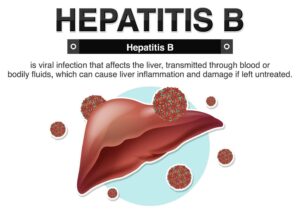
Is Coffee Good for Your Liver: A Guide
Coffee is a staple in many people’s daily routines. Whether it’s to kickstart the morning or get through the mid-afternoon slump, coffee is often relied on for its energy-boosting properties. But did you know that there’s another reason to make coffee a part of your daily routine? Recent studies have shown that coffee may have positive effects on liver health, making it more than just a pick-me-up beverage. In this article, we will delve into the link between coffee and fatty liver disease, exploring the evidence and recommendations for incorporating coffee into a healthy liver lifestyle.
Coffee and Fatty Liver Disease: What the Science Says
According to Dr. Jamile Wakim-Fleming, a specialist in this area, there is a significant amount of evidence supporting the idea that coffee is beneficial for health, particularly in addressing nonalcoholic fatty liver disease (NAFLD). This condition, where excess fat accumulates in cells, affects about 1 in 4 people in the United States, predominantly those who are overweight, have diabetes, or high cholesterol levels. If not managed, NAFLD can progress to cirrhosis and potentially to cancer or failure.
Studies indicate that high coffee consumption is linked to a reduced risk of NAFLD. For instance, research in the Journal of Hepatology revealed that drinking three or more cups daily could lower the risk of developing this disease by 40% compared to non-coffee drinkers. Another study in the Journal of Gastroenterology and Hepatology found that two or more cups a day were associated with a 66% lower risk of NAFLD.
Moreover, coffee is also protective for those already facing problems. In the case of hepatitis C, a virus affecting this organ which can lead to cirrhosis and cancer, coffee consumption has been shown to decelerate disease progression. This benefit is attributed to coffee’s ability to diminish inflammation and oxidative stress, crucial factors in the development of diseases.
Is Decaf Coffee Good for Your Liver?
Many people wonder if decaffeinated versions have the same benefits for liver health as the caffeinated variety. The answer is yes, but to a lesser extent. While the decaffeinated version still contains some caffeine, it typically has less than its caffeinated counterpart. However, it still boasts other beneficial compounds such as antioxidants and polyphenols, which have been linked to improved liver function.
A study published in the Journal of Gastroenterology and Hepatology found that both caffeinated and decaffeinated versions were associated with a lower risk of developing NAFLD. However, the protective effect was stronger with the caffeinated variety consumption. This suggests that while the decaffeinated version may still offer some benefits for liver health, the caffeinated variety may be more effective.
Coffee Recommendations for Liver Health
Based on the evidence, it’s clear that coffee can have positive effects on liver health. But how much coffee should you drink to reap these benefits? According to Dr. Wakim-Fleming, there isn’t a specific recommended amount, but she suggests aiming for 2-3 cups per day. However, it’s important to note that everyone’s body reacts differently to caffeine, so it’s essential to listen to your body and adjust accordingly.
It’s also crucial to consider what you’re adding to your coffee. While black coffee has been shown to have the most significant benefits for liver health, adding sugar, cream, or other additives can negate these effects. It’s best to stick to natural sweeteners like honey or stevia and use non-dairy milk alternatives if needed.
Additionally, it’s essential to maintain a balanced and healthy diet overall for optimal liver health. Coffee should not be seen as a cure-all for liver problems, but rather as a supplement to a healthy lifestyle. Eating a diet rich in fruits, vegetables, whole grains, and lean proteins, while limiting processed foods and alcohol, is key to maintaining a healthy liver.

How to Have a Healthy Liver
Aside from incorporating coffee into your daily routine, there are other steps you can take to promote a healthy liver. Here are some tips:
1. Stay hydrated
Drinking enough water is crucial for liver health. Water helps flush out toxins and waste products from the body, reducing the burden on the liver. Aim for at least eight glasses of water per day, and more if you’re physically active or live in a hot climate.
2. Exercise regularly
Regular physical activity has been shown to improve liver function and reduce the risk of developing liver disease. Aim for at least 30 minutes of moderate exercise, such as brisk walking or cycling, five days a week.
3. Limit alcohol consumption
Excessive alcohol consumption is one of the leading causes of liver disease. If you choose to drink, do so in moderation. The recommended limit is no more than one drink per day for women and two drinks per day for men.
4. Avoid or limit processed foods and added sugars
Foods high in added sugars and unhealthy fats can contribute to the development of NAFLD. Limiting these types of foods and opting for whole, unprocessed foods instead can help keep your liver healthy.
5. Get regular check-ups
It’s essential to get regular check-ups with your doctor to monitor your liver health. This is especially important if you have risk factors for liver disease, such as obesity, diabetes, or a family history of liver problems.
Conclusion
In conclusion, the evidence suggests that coffee can have positive effects on health, particularly concerning NAFLD. Regular coffee consumption has been linked to a lower risk of developing diseases in this organ, and it may also have protective effects for those who already have related health issues. However, it’s essential to maintain a balanced and healthy lifestyle overall, including a nutritious diet and regular exercise, for optimal health in this area. So, go ahead and enjoy your daily cup of coffee, but remember to listen to your body and make healthy choices to keep in top shape.

